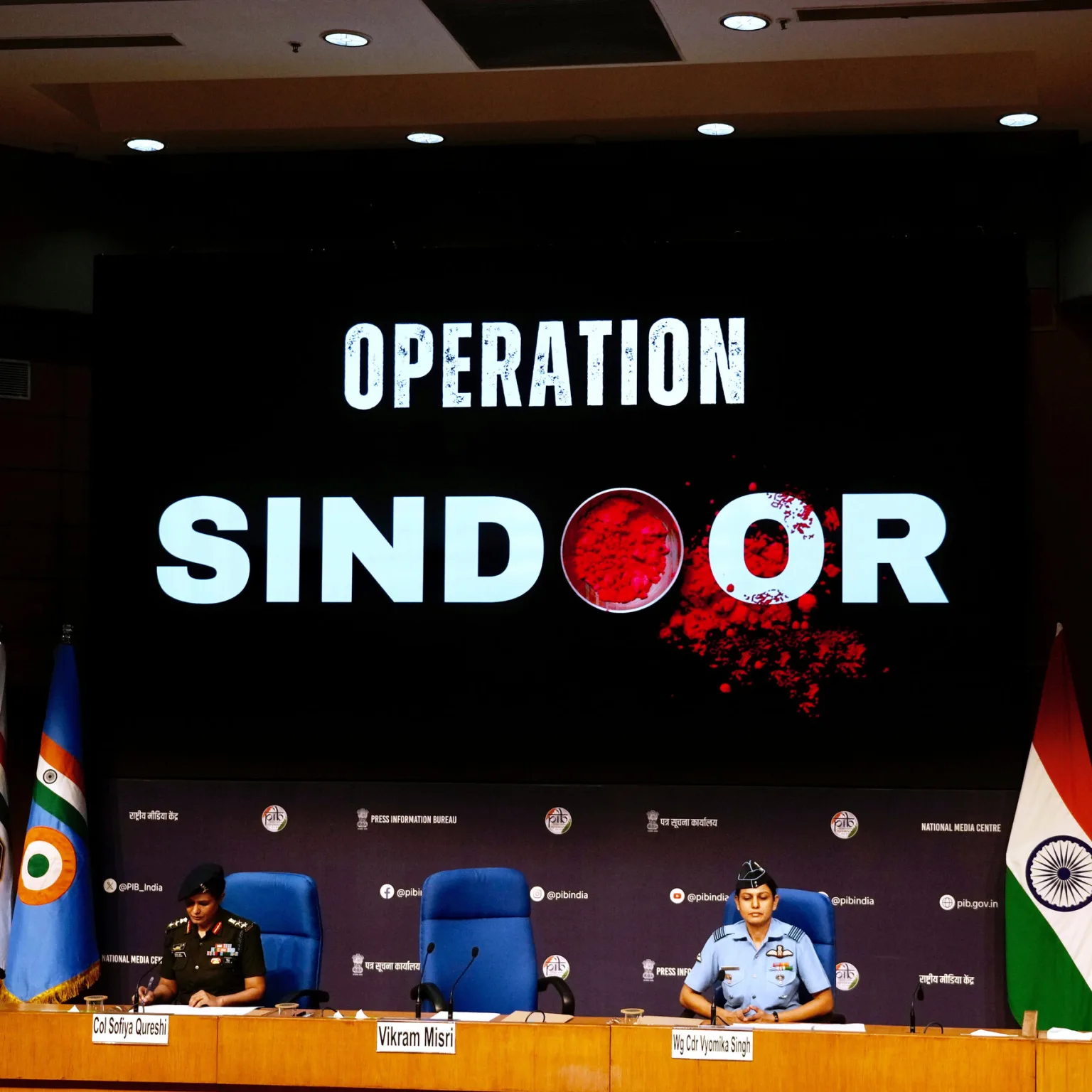India on Sunday released the names of top Pakistani officials who attended the funeral of LeT terrorists, who lost their lives during the May 7 ‘Operation Sindoor,’ carried out by Abdul Rauf.
According to Indian officials, the funeral of terrorists killed in Muridke was led by Abdul Rauf, a LeT commander who is a specially designated global terrorist by the US.
Senior Pakistani military officials and the Punjab Inspector General of Police were present at the service, according to the ANI news agency. Attendees included Lt Gen Fayyaz Hussain, Major General Rao Imran, Brigadier Mohd Furqan from Administration, Usman Anwar Pakistan Punjab Legislator and Malik Sohaib Ahmed.
Operation Sindoor struck nine terror facilities across PoK and Pakistan. The PoK targets included Sawal Nala, Syedna Bilal, Gulpur, Barnala, and Abbas. In Pakistan proper, strikes occurred at Bhawalpur, Muridke, Sarjal, and Mehmoona Joya.
The defence ministry has identified 21 terrorist installations in Pakistan-Occupied Kashmir and Pakistan: Sawal Nala, Syed na Bilal, Maskar-e-Aqsa, Chelabandi, Abdullah bin Masood, Dulai, Garhi Habibullah, Batrasi, Balakot, Oghi, Boi, Sensa, Gulpur, Kotli, Barali, Dungi, Barnala, Mehmoona Joya, Sarjal, Mudrike and Bahawalpur.
Khalid Abu Akasha, eliminated on May 7, facilitated arms trafficking from Afghanistan to Pakistan while operating from Peshawar. This trained LeT operative had previously operated in J&K before returning to Pakistan. He had recently relocated to LeT headquarters in Muridke and served on the organisation’s Central Committee. The defence ministry reported his close collaboration with central LeT/JuD figures: Yahya Mujahid, Qari Yakub Sheikh, Abdul Rehman, Khalid Waleed, Engineer Haris Dar and Abdul Rehman Abid.
Mudassir Khadian Khas, [b]a LeT operative who managed the Muridke camp, worked alongside Hafiz Abdul Rauf, the Al Khidmat Committee Chairman, as his security chief. He also collaborated with PMML General Secretary Hafiz Khalid Waleed in Lahore. He is Hafiz Mohammad Saeed’s son-in-law.
Mohammad Hassan Khan, another target of Operation Sindoor, was the son of JeM Operational Commander Mufti Asghar Khan Kashmiri. He operated from the Syedna Bilal camp with Mufti Asghar Khan Kashmiri and Ashiq Negroo, and participated in the 2019 Pulwama Attack. He accompanied Asghar Khan Kashmiri to Shura Meetings in Islamabad and coordinated with Shakargarh-based JeM operatives Mohammad Adnan Ali, Ali Kashif Jaan and Mohammad Yasir.
Hafiz Muhammed Jameel, JeM Chief Maulana Masood Azhar’s eldest brother-in-law and advisor, oversaw JeM headquarters operations in Bahawalpur. As a Shura member and close associate of Masood Azhar, Jameel supervised terrorist activities from Bahawalpur. The defence ministry stated he visited PoK to recruit youth for jihad against India and raise funds for JeM.[/b]
While India conducted precise strikes during Operation Sindoor, Pakistan damaged a Gurudwara and Madarasa in Poonch.
The defence ministry presented evidence of destroyed Pakistani drones at Ramnagar, Naushera and Miran Sahib.
India maintained its position on direct DGMO communication, declining third-party mediation or back-channel talks, showing its preference for established military channels for conflict resolution.
Tensions escalated after Pakistan’s drone attacks on Indian locations prompted a robust Indian response. On May 8, foreign secretary Vikram Misri stated that the Pahalgam terror attack constituted Pakistan’s “original escalation,” to which India responded with “controlled, precise, measured, considered and non-escalatory” strikes on terror infrastructure.
